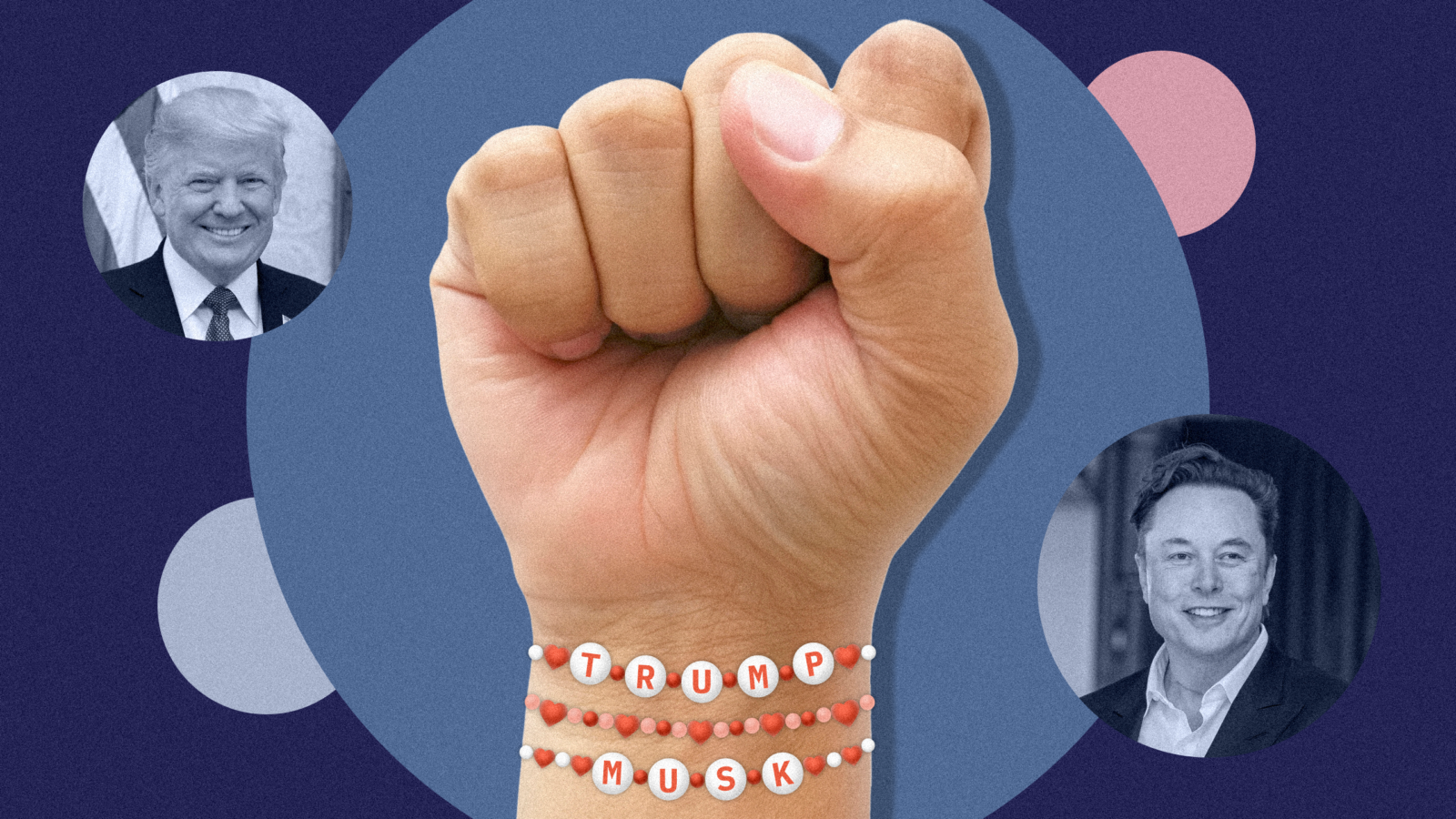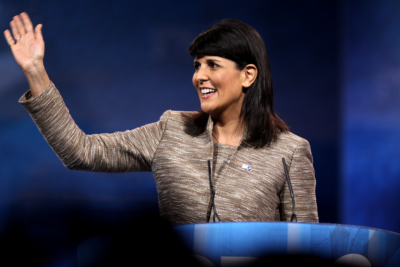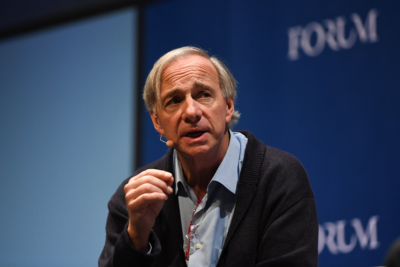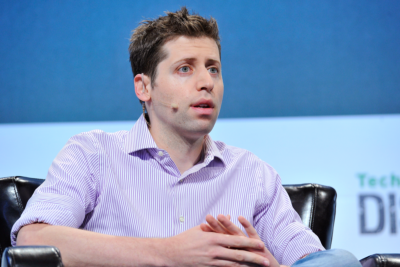How Executives Navigate the Outrage Treadmill
Earlier this year, the town of Easthampton, Mass., made international headlines over an executive search for a new superintendent.

Sign up to unveil the relationship between Wall Street and Washington.
Earlier this year, the town of Easthampton, Mass., made international headlines over an executive search for a new superintendent.
In the middle of salary negotiations, the candidate offered the job, former high school principal Vito Perrone, sent an email to the school committee chairperson and her executive assistant, addressing them in the salutation as “Ladies.”
The school committee chair, Cynthia Kwiecinski, took offense, calling it a “microaggression” and telling Perrone she considered it a “problem” that a fellow educator wasn’t aware this was a hostile and derogatory term. The executive assistant, Suzanne Colby, who also received the email, did not feel the same way. In a social media post, she said that while she understood opinions may differ, “I want to be clear, I am a lady. I appreciate being called such and I appreciate being treated as such. To me, the word represents respect.”
It would be nice to say that what followed was an evolved and civilized conversation over how one word might cause such distinctly polarized reactions – to say nothing of the ink it generated.
What happened, instead, was Perrone’s $150,000-a-year-plus superintendent job offer was abruptly withdrawn. Residents of the town fiercely protested, some even demanding a vote for Kwiecinski’s recall. Two school committee members resigned in opposition to the decision (both were women, one writing pointedly in the opening of her resignation email, “Good morning ladies and gentlemen of the Easthampton School Committee…”) Perrone did not get the job. And this autumn, school committee chair Kwiecinski stepped away from her position for family reasons.
In response to being accused of committing a microaggression, Perrone said, “I was shocked. I grew up in a time when ‘ladies’ and ‘gentlemen’ was a sign of respect. I didn’t intend to insult anyone.”
This microaggression story is a micro version of the broader tectonic shifts being felt by many executives – whether six-figure school administrators or CEOs earning millions. Increasingly mindful that using a word or term might be deemed universally repugnant, not to mention, sexist, racist, or otherwise deeply offensive, executives across Wall Street and beyond are doing their best to circumnavigate these perilous waters, often without much guidance.
Chief among their worries is making an inadvertent error without having the chance to gain a better understanding of the offense being committed, or learning why it is perceived to be wrong, before facing public condemnation, or in parlance of our times, being “canceled.” As is now widely understood, a serious misstep or misbehavior can lead to long-term or irreparable social, professional and financial harm.
“I’ve been running a closed discussion group covering ‘cancelable issues’ for years,” one prominent asset manager tells Power Corridor, who asked not to be named, for obvious reasons. He says he finds it a safe way to vet and discuss ideas, ask difficult questions and learn from others about the nuances of hot-button issues without the threat of outrage or censure. Members of the group, which meets both online and in person, usually join after being referred by a friend or colleague.
On the flip side, embracing what some executives are calling “woke” thought leadership, can awaken “anti-woke” backlash, as well as critics alleging hypocrisy and “woke-washing,” which can force executives back into their chambers of silence, or at least cause them to think twice before they post a stream-of-consciousness rant on LinkedIn.
At a conference last month, Mark Wiedman, senior managing director at BlackRock, who also sits on the firm’s global executive committee, acknowledged that, following the extended hue and cry over BlackRock’s support of factoring ESG (short for Environmental, Social and Governance) into its investing strategies, the company’s revised approach will be, in his words, to “speak softly and invest money.”
BlackRock Chief Executive Larry Fink earlier this year went so far as to say he was “ashamed” to have been drawn into the debates over ESG, a term that has become heavily politicized. Instead, he says, he will focus on “conscientious capitalism,” which will include “decarbonization,” “governance” and “social issues, if that’s something we need to address.”
Wiedman, who heads up global client business for BlackRock, remarked in October, “We don’t need as much talk. We’ve been a little quieter. That’s what our clients are looking for.” According to Harvard Business Review, this may well be true, as the constant stream of solidarity statements and press releases coming from companies on a mishmash of social justice and political issues have caused employees, clients and consumers to begin suffering from “statement fatigue.”
Amid the heightened political, economic and social tensions, McKinsey reported in 2022 that positions focused on diversity, equity and inclusion quadrupled in the prior five years, with more than 50 percent of Fortune 500 companies appointing a chief diversity officer (CDO).
As many of these roles have been newly created and remain in their infancy, they have apparently had a high turnover rate, the consultancy noted. “The CDO position may have been created with the best of intentions, but many organizations don’t seem to know quite what it is,” it said. “The scope and nature of the position are often poorly defined, with ambiguity about everything from its purpose to its authority and even seniority within the organization.”
“Most people agree how we achieve equity and diversity in our society should be the question, not if we need it,” says John Altorelli, a New York corporate lawyer. “Most of us agree we need it.”
Altorelli is not of the breed of executive who believes silence is golden in the face of important societal, political and economic pressures. For the past two years, he’s been holding informal salons at his home in Manhattan, where people connect – always in person – to discuss issues of the day.
“Having been a big law [firm] lawyer, I wanted to increase my awareness and avoid becoming generationally out of sync,” he tells Power Corridor. “I also sensed a lot of us needed to feel better about where the world is going. Many of us have been in a funk, post-pandemic, and the political scene, the geopolitical scene, is really bad. I think people need to come back from the brink here – and I think they have it in them.”
He says the group, which has now grown to around 100 members (mostly referred by other members, or through professional networks), started out by discussing crypto and the rise of fintech, but has since moved on to cyber and security issues, as well as artificial intelligence, which he expects will be “the biggest bubble in my lifetime.”
Political issues are also welcome, he says. “I grew up in a time of protecting individual rights, but some of the biggest beneficiaries of individual rights are now the ones trying to limit other people’s rights – which is really amazing.”
Altorelli says that by keeping conversations in-person and offline, people automatically treat each other with greater civility and respect. “You would never talk to people the way you do online in person,” he says. “There is a huge difference. We make sure everybody identifies themselves and we disclose our biases. People have gotten more comfortable, even when they don’t agree. I’ve learned a lot and I’ve seen a change in some people who are more open to learning things they didn’t know.”
He says he hopes to do more salons in the future, covering a wider range of topics and bringing people together from Wall Street, academia, the military and various industries, “the broadest group possible,” he says. “We can agree to disagree, that is fundamental and not a problem. More often than not, what people disagree on is not the view, but on not being willing to go to the extreme with it.”
Extreme or not, taking a stance seems to have become much more fraught in light of recent geopolitical events, notes Liz Hoffman at Semafor Business, particularly with the war in Israel and Gaza, which began in early October.
Over the past decade, CEOs have had to clamber through a minefield of “no-win situations,” she writes, “demanding responses that were likely to alienate some employees, investors, customers, or regulators. The violence in Israel and Gaza is the latest issue…each social storm that passes without CEOs being pressured into delicate dances, and some number of them tripping over their shoelaces in the process, moves us back to a world when hardly anyone cared what they had to say.”
James Koutoulas, chief executive of Typhon Capital Management, a hedge fund based in Miami Beach, Fla., believes the more executives in leadership roles cede their power to speak, or allow themselves to be forced into silence, the more likely they will sink into obsolescence.
“If you don’t want to speak your views, you may be safe, but you’re also irrelevant,” he tells Power Corridor. “Stand up, speak truth to power and have the integrity to make your position known. Otherwise, you just contribute to the decline of society and I’m not on board with that.”
For some, the war has presented a stark exception to the silence-is-golden rule. Hedge funder Roy Niederhoffer of New York-based R.G. Niederhoffer Capital Management tells Power Corridor such crises “demand that all of us get out from behind our walls and let the world know which side is right, which side we stand for.”
Going forward, he says, he prefers to know exactly where those he does business with stand, so he can decide whether their values align.
“I’ve stopped caring what people think about what I post,” he says. “It is time for people to pick a side and show who they are.”
The views expressed in this op-ed are solely those of the author and do not necessarily reflect the opinions or policies of The Daily Upside, its editors, or any affiliated entities. Any information provided herein is for informational purposes only and should not be construed as professional advice. Readers are encouraged to seek independent advice or conduct their own research to form their own opinions.











